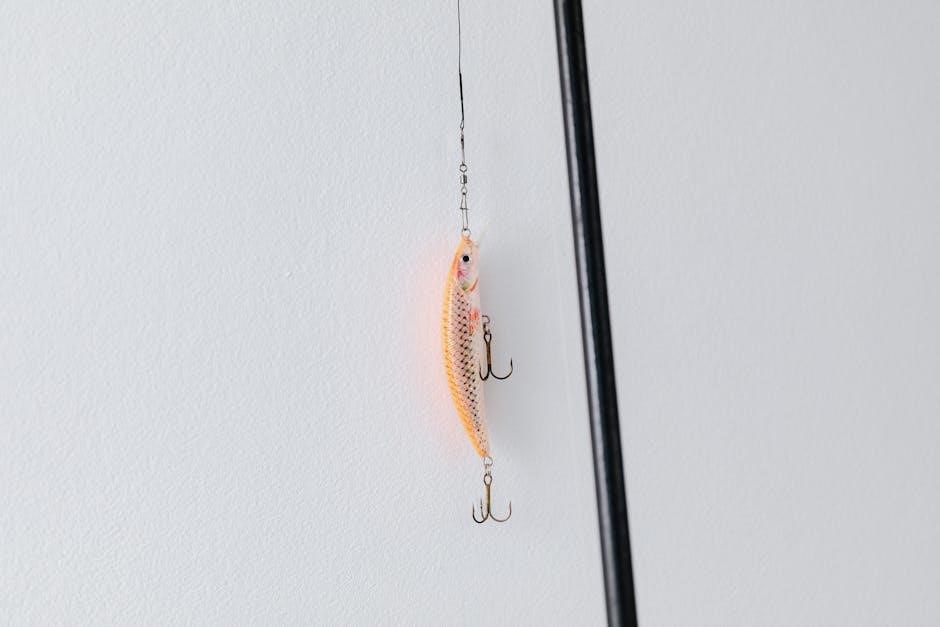The 2024 NJ Saltwater Fishing Regulations guide provides essential updates on seasonal limits, size restrictions, and licensing requirements to ensure sustainable and safe fishing practices in New Jersey.
Overview of the 2024 Regulations
The 2024 NJ Saltwater Fishing Regulations outline essential guidelines for recreational anglers, including bag limits, size restrictions, and fishing seasons. These rules aim to conserve marine resources while ensuring safe and enjoyable fishing experiences. Key updates include mandatory safety equipment requirements and restrictions on certain fishing gear. The regulations also emphasize the importance of proper licensing and registration to monitor fish populations and maintain sustainable practices. By adhering to these guidelines, anglers contribute to the preservation of New Jersey’s marine ecosystems for future generations. Stay informed to comply with all updates and enjoy a successful fishing season.
Importance of Adhering to Regulations
Adhering to the 2024 NJ Saltwater Fishing Regulations is crucial for maintaining healthy marine ecosystems and ensuring sustainable fishing practices. Compliance helps protect fish populations, habitats, and biodiversity, while also safeguarding the recreational fishing industry. By following size limits, bag restrictions, and seasonal closures, anglers prevent overfishing and promote the long-term health of marine species. Additionally, adherence supports conservation efforts and ensures that future generations can enjoy New Jersey’s abundant saltwater resources. Responsible fishing practices not only preserve the environment but also contribute to the overall balance of the marine ecosystem.
Key Components of the 2024 Regulations
The 2024 NJ Saltwater Fishing Regulations outline bag limits, size restrictions, seasonal closures, licensing requirements, and gear restrictions to promote sustainable fishing and resource conservation.
Bag Limits and Size Restrictions
The 2024 NJ Saltwater Fishing Regulations establish specific bag limits and size restrictions to conserve marine resources. For example, Summer Flounder (Fluke) have a limit of 3 fish at 18 inches in most marine waters, while Black Sea Bass require a 12.5-inch minimum size with a bag limit of 10 per person. Bluefish have no closed season but are subject to size and bag restrictions. These limits vary by species and fishing location, ensuring sustainable fishing practices. Anglers must adhere to these rules to help maintain healthy fish populations and ecosystems. Cleaning or filleting fish with size limits is prohibited at sea.
Fishing Seasons and Closed Periods
The 2024 NJ Saltwater Fishing Regulations outline specific fishing seasons and closed periods to protect spawning cycles and maintain fish populations. For example, Black Sea Bass fishing is permitted from May 17 to June 19, while Scup (Porgy) fishing is divided into two seasons with varying bag limits. Some species, like Bluefish, have no closed season but are subject to size and bag restrictions. These seasonal regulations ensure sustainable fishing practices and protect vulnerable species during critical life stages. Anglers must consult the guide to confirm open and closed periods before planning their trips.
Licensing and Registration Requirements
Anglers in New Jersey must comply with specific licensing and registration requirements for saltwater fishing. The state mandates enrollment in the New Jersey Saltwater Recreational Registry Program, which is free and easy to complete online. This registration is required for all saltwater anglers, regardless of whether they hold a fishing license from another state. Additionally, shellfish harvesting (e.g., hard clams) requires a separate permit. Visit SaltwaterRegistry.nj.gov to register and ensure compliance with state regulations. Proper licensing helps manage fish populations and ensures sustainable fishing practices for future generations.
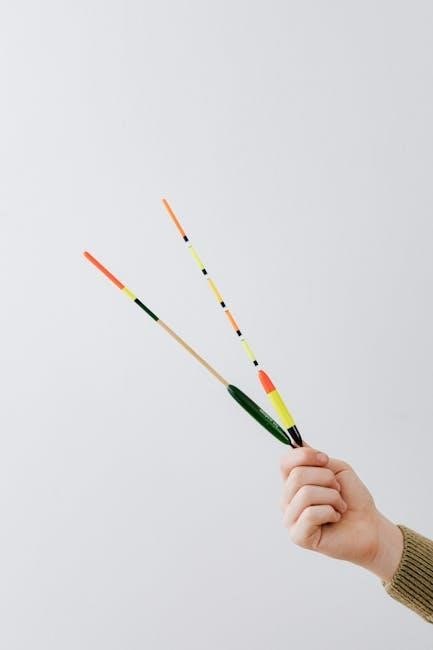
Safety and Gear Regulations
The 2024 NJ Saltwater Fishing Regulations emphasize mandatory safety equipment, including life jackets, and prohibit certain gear to protect marine life and ensure safe fishing practices.
Mandatory Safety Equipment
The 2024 NJ Saltwater Fishing Regulations require all recreational vessels to carry essential safety gear, including U.S. Coast Guard-approved life jackets for each passenger. Personal Flotation Devices (PFDs) must be readily accessible and properly sized for each individual. Additionally, vessels must be equipped with flares, a fire extinguisher, and a first aid kit. A whistle or other signaling device is also mandatory. New for 2024, all occupants of vessels under 21 feet in length must wear a life jacket during the winter months (November 1 to April 30). These requirements ensure a safer fishing experience and compliance with state and federal regulations. For a full list of safety gear, refer to the 2024 NJ Saltwater Fishing Regulations PDF.
Prohibited Fishing Gear
The 2024 NJ Saltwater Fishing Regulations prohibit the use of certain gear to protect marine ecosystems and ensure sustainable fishing practices. Gillnets and longlines are strictly prohibited in state waters due to their potential to harm non-target species. Additionally, traps and spears are regulated, with specific restrictions on their use and design. The use of explosives or poisons for fishing is also illegal. These prohibitions aim to minimize bycatch and protect endangered species. Anglers must adhere to these gear restrictions to avoid penalties and support conservation efforts. For a detailed list of prohibited gear, consult the 2024 NJ Saltwater Fishing Regulations PDF.
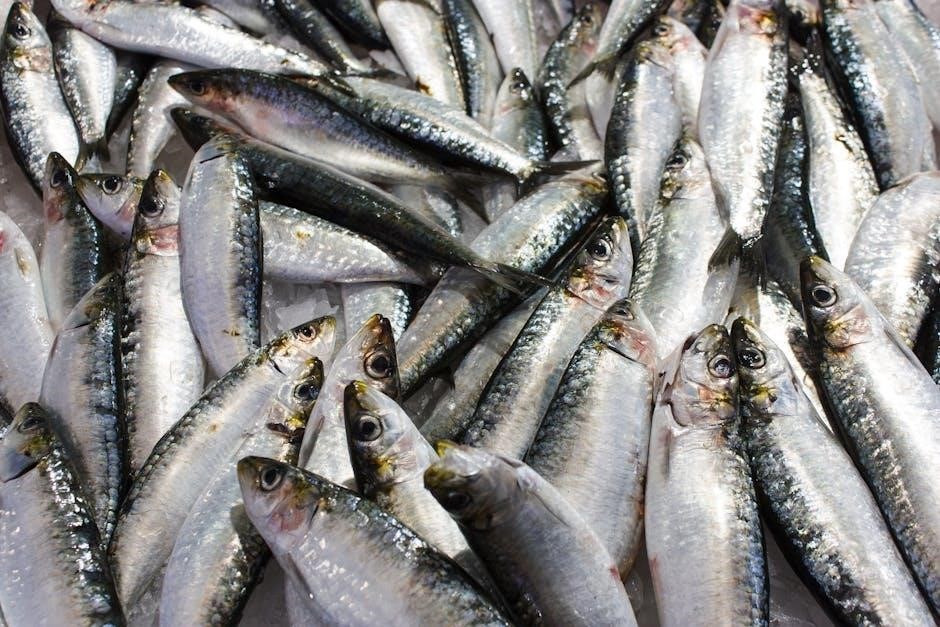
Species-Specific Regulations
The 2024 NJ Saltwater Fishing Regulations outline specific rules for popular species like summer flounder, striped bass, and black sea bass to ensure their populations remain healthy and sustainable.
High-Profile Species Regulations
The 2024 NJ Saltwater Fishing Regulations place specific focus on high-profile species like summer flounder, black sea bass, and striped bass. Summer flounder (fluke) have a 18-inch minimum size limit in most marine waters, while Delaware Bay and Island Beach State Park have slightly different restrictions. Black sea bass regulations include a 12.5-inch minimum size and a 10-fish bag limit during the open season from May 17 to June 19. Striped bass rules vary by location, with a 28-inch minimum size in certain areas. These measures aim to balance recreational and conservation needs, ensuring sustainable fish populations for future generations. Anglers must adhere to these limits to support marine ecosystem health.
Lesser-Known Species Guidelines
While high-profile species often receive attention, the 2024 NJ Saltwater Fishing Regulations also address lesser-known species to ensure their sustainability. Hard clams, for example, have a minimum size limit of 1.5 inches and a recreational limit of 150 clams per person, with no harvesting allowed on Sundays. Scup (porgy) regulations include a 10-inch minimum size and a bag limit of 50 fish per vessel from May 1 to December 31. River herring remains closed to harvest due to conservation efforts. These guidelines aim to protect biodiversity and ensure that even lesser-known species are managed responsibly for future generations. Awareness of these rules is crucial for all anglers.
Conservation and Sustainability
The 2024 NJ Saltwater Fishing Regulations emphasize conservation efforts to protect marine ecosystems through sustainable practices, ensuring healthy fish populations and habitats for future generations.
Efforts to Protect Marine Ecosystems
The 2024 NJ Saltwater Fishing Regulations include measures to safeguard marine ecosystems by enforcing size and bag limits, reducing bycatch, and protecting critical habitats. Seasonal closures and gear restrictions aim to prevent overfishing and minimize environmental impact. Additionally, the regulations promote sustainable fishing practices to maintain healthy fish populations and biodiversity. By adhering to these guidelines, anglers contribute to the conservation of New Jersey’s marine resources, ensuring the long-term health of its coastal waters and the species that depend on them. These efforts reflect a commitment to balancing recreational fishing with environmental stewardship.
Restocking and Habitat Restoration
New Jersey’s 2024 saltwater fishing regulations emphasize restocking programs to replenish depleted species and restore marine habitats. These efforts aim to enhance biodiversity and improve fish populations. Habitat restoration projects focus on rebuilding coastal areas, such as wetlands and reefs, to provide spawning grounds and nurseries for juvenile fish. Collaborative initiatives with conservation groups and state agencies ensure sustainable practices. By restocking key species and rehabilitating ecosystems, New Jersey fosters a balanced marine environment, benefiting both marine life and recreational anglers. These measures highlight the state’s commitment to long-term ecological health and fishing resources.
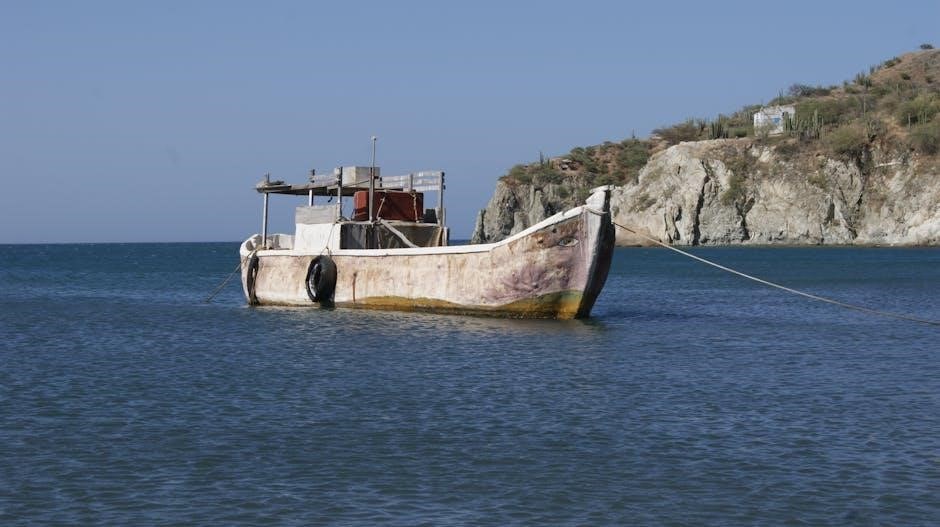
Enforcement and Penalties
Inspections ensure compliance with 2024 NJ saltwater fishing regulations. Violations may result in fines, license suspension, or confiscation of gear. Report violations to conservation officers promptly.
Inspections and Compliance Checks
Marine law enforcement officers conduct regular inspections to ensure anglers comply with the 2024 NJ saltwater fishing regulations. These checks include verifying licenses, permits, bag limits, and size restrictions. Inspectors may also examine fishing gear to ensure it meets legal standards. Anglers must cooperate fully during inspections, as failure to do so may result in penalties. Officers may request to measure catches or review gear to confirm adherence to rules. Carrying a printed or electronic copy of the regulations is recommended for quick reference during inspections. Compliance checks help maintain sustainable fishing practices and preserve New Jersey’s marine resources effectively.
Consequences of Violations
Violations of the 2024 NJ saltwater fishing regulations can result in penalties, including fines, suspension of fishing privileges, and confiscation of illegal catches or gear. Repeated offenses may lead to permanent revocation of licenses. Fines vary based on the severity of the infraction, with higher penalties for serious violations such as exceeding bag limits or harvesting undersized fish. In addition, violators may face legal action and be required to appear in court. Compliance with regulations is crucial to avoid these consequences and to support conservation efforts. Anglers are encouraged to familiarize themselves with all rules to fish responsibly and legally.
Accessing the 2024 NJ Saltwater Fishing Regulations PDF
The official 2024 NJ Saltwater Fishing Regulations PDF is available for free download on the NJ Fish & Wildlife website and SaltwaterRegistry.nj.gov. Regular updates ensure anglers stay informed.
Where to Download the PDF Guide
The 2024 NJ Saltwater Fishing Regulations PDF can be downloaded directly from the NJ Fish & Wildlife official website. Visit the homepage, navigate to the “Marine” section, and select “2024 Saltwater Fishing Regulations” to access the guide. Additionally, the PDF is available on the SaltwaterRegistry.nj.gov website. This comprehensive guide includes detailed information on bag limits, size restrictions, and licensing requirements. Ensure you download the most recent version for the latest updates and regulations to stay compliant during your fishing trips in New Jersey.
Key Sections of the PDF
The 2024 NJ Saltwater Fishing Regulations PDF includes essential sections such as Bag Limits and Size Restrictions, detailing allowable catches per species. The Fishing Seasons and Closed Periods section outlines timing for various fish species. Licensing and Registration Requirements explain necessary permits and the free Saltwater Registry. Safety and Gear Regulations cover mandatory equipment and prohibited gear. Additionally, Species-Specific Regulations provide rules for high-profile and lesser-known species. The guide also highlights Conservation Efforts and Enforcement Measures to ensure sustainable fishing practices.
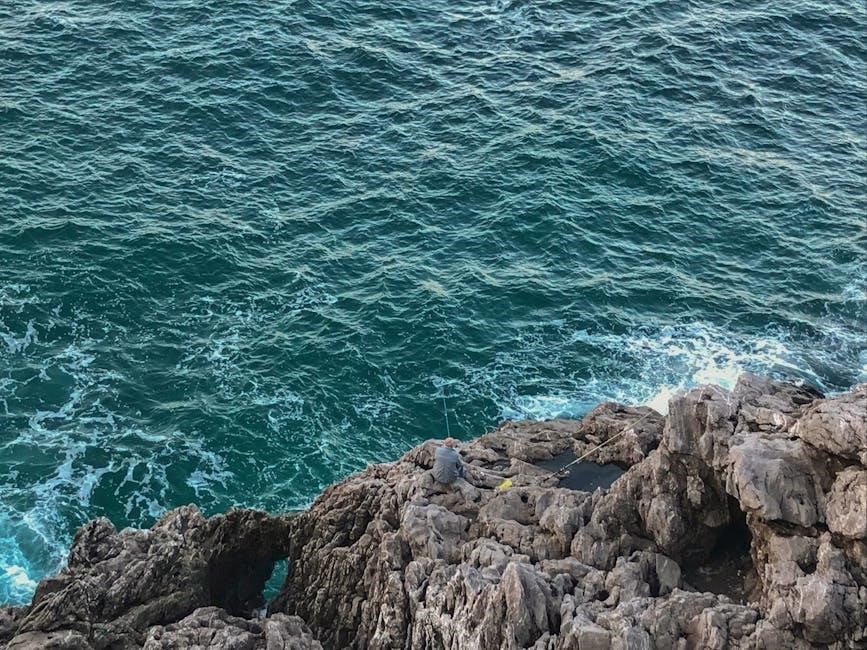
Staying Informed and Responsible Fishing Practices
Staying informed about regulation updates ensures compliance and promotes sustainable fishing. Regularly check official sources for changes and practice responsible fishing to help conserve marine resources.
Importance of Regular Updates
Regular updates to the 2024 NJ Saltwater Fishing Regulations are crucial for anglers to stay compliant and informed. These updates often reflect changes in ecological conditions, conservation needs, and enforcement measures. Fishermen must check official sources like the NJ Fish & Wildlife website or the Marine Digest for the latest information. Staying informed ensures adherence to size limits, season closures, and gear restrictions, promoting sustainable fishing practices. Additionally, updates may include new species management strategies or safety guidelines, which are essential for both environmental protection and angler safety. Regular checks help anglers avoid penalties and contribute to the long-term health of marine ecosystems.
Best Practices for Sustainable Fishing
Adopting sustainable fishing practices is vital for preserving New Jersey’s marine ecosystems; Anglers should always release fish gently, avoiding excessive handling or removal from water. Using circle hooks and barbless lures reduces injury to fish, while minimizing bycatch ensures non-target species are protected. Proper disposal of fishing gear and waste prevents habitat pollution. Respecting closed seasons and size limits helps maintain healthy fish populations. Additionally, anglers should avoid fishing in sensitive habitats and report illegal activities to conservation authorities. These practices promote ecological balance and ensure future generations can enjoy productive fisheries.

